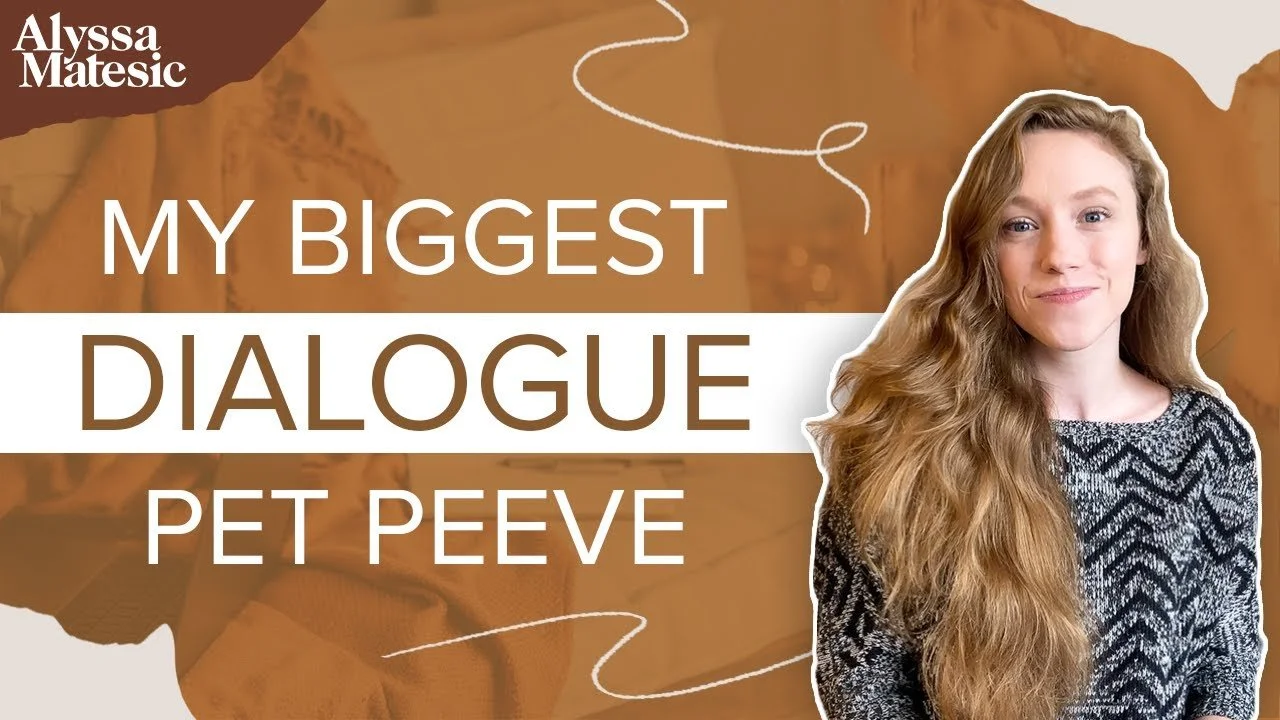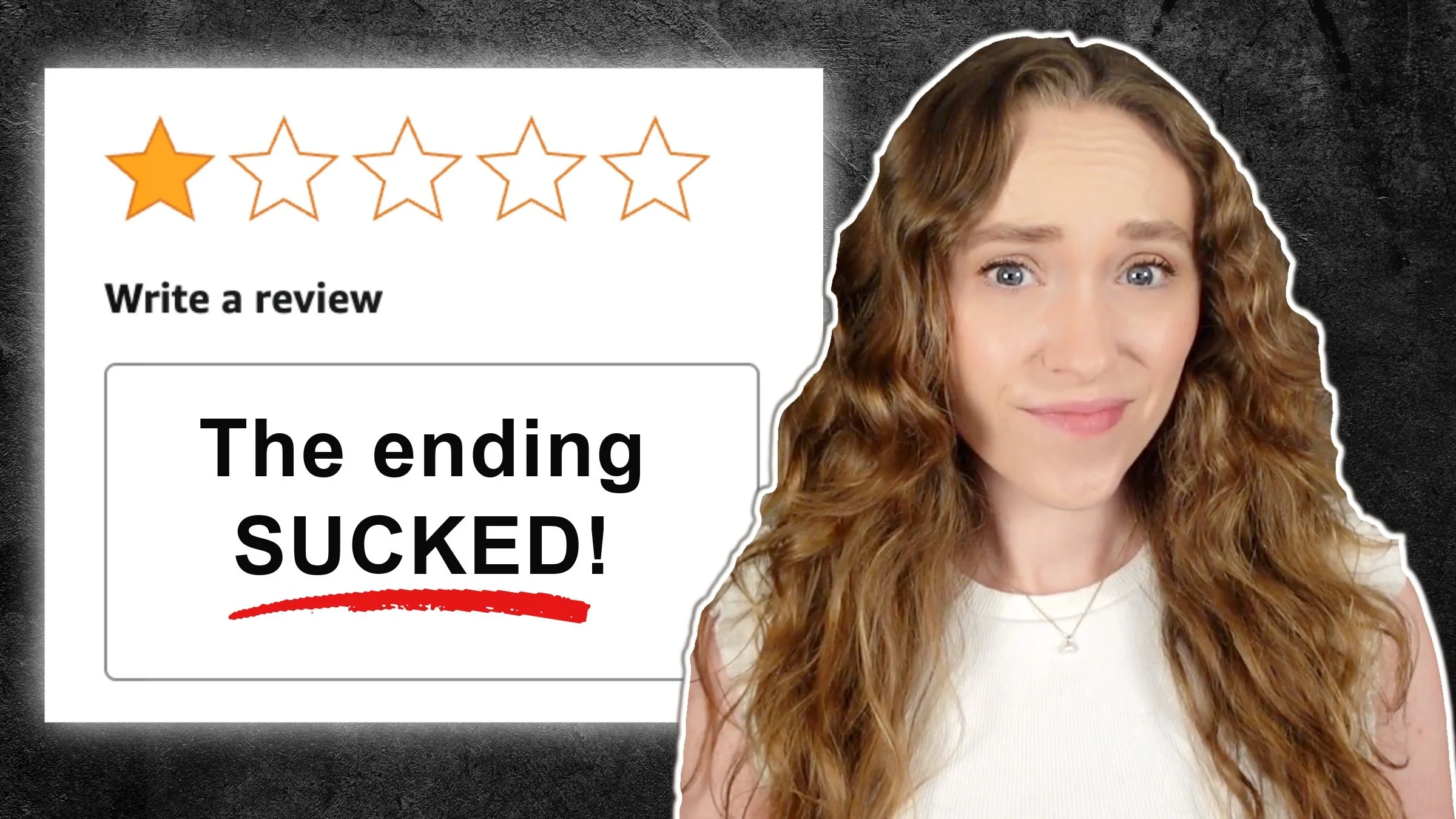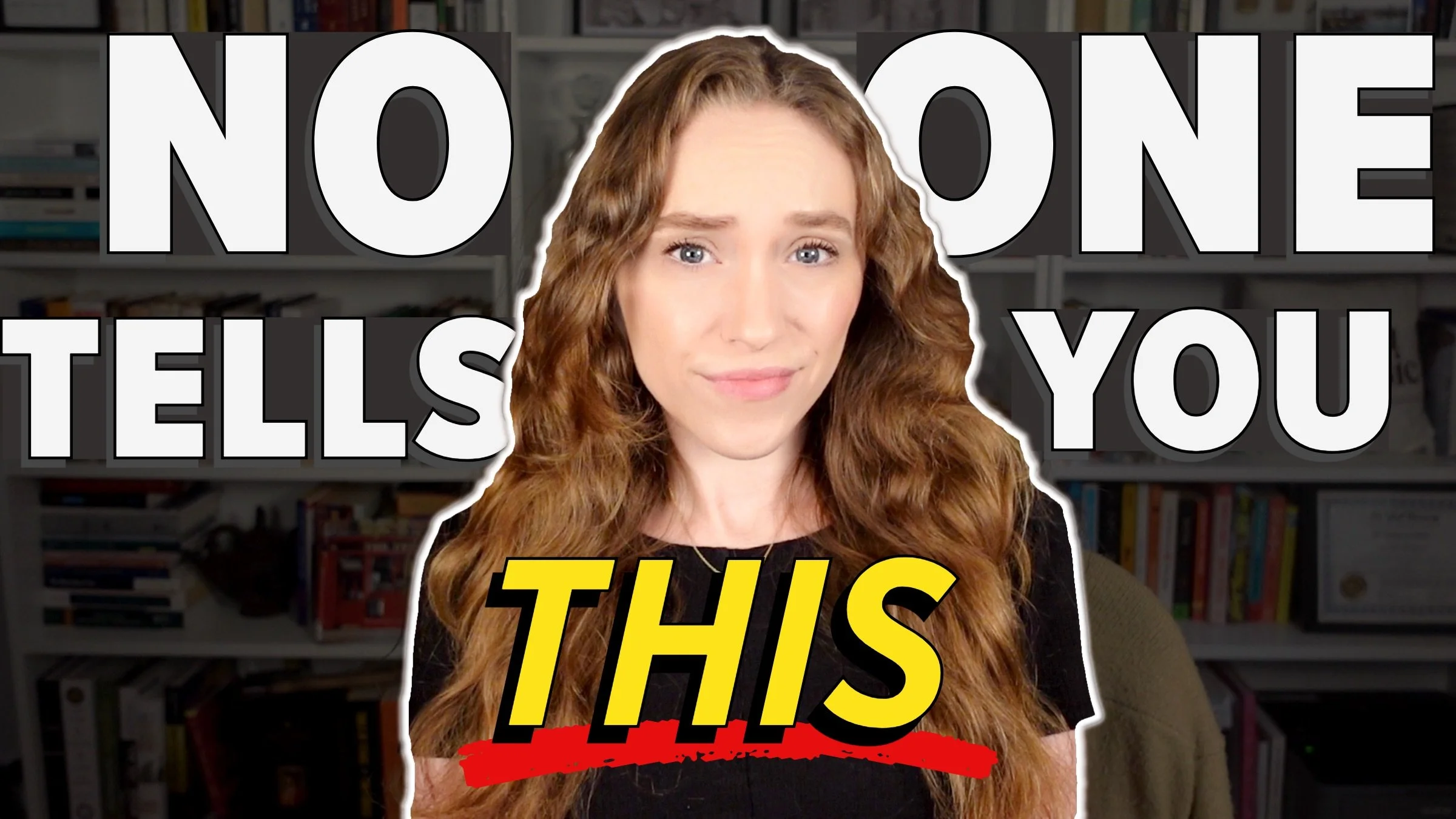My Biggest Dialogue Writing Pet Peeve
HIT PLAY OR READ THE POST BELOW:
Dialogue is a critical component of any fiction story and getting it spot on is tough. In your head, your characters sound like real people having real conversations—yet, on the page, it can come across as off or unnatural.
There are many reasons why writing dialogue can come across as artificial on the page, one of the first being that, in real life, we use a lot of crutch and filler words to fill awkward silences. However, there are other subtler reasons as to why your dialogue might be stilted, one of which I particularly dislike the most.
In this article I’m going to talk through my number one pet peeve when it comes to writing dialogue in fiction novels, giving examples of how you can edit to avoid this dialogue mistake. Hopefully this helps you spot points of weak dialogue in your own stories and make your characters’ conversations smoother, natural, and realistic.
To start, do you notice anything strange in the following lines of dialogue?
“Hey Mom,” I said as I entered the kitchen.
“Hi honey, what’s up?”
“I was just thinking about Dad’s birthday. It’s next Tuesday and he’s turning 65.”
My biggest pet peeve with dialogue is when writers jam explanatory information and backstory into a conversation where it doesn’t belong and, frankly, doesn’t make sense. In this example, the writer is clearly trying to hand information to the reader via dialogue about the narrator’s father’s upcoming 65th birthday.
To clarify, my pet peeve isn’t about what’s being said, but rather how it’s being said. We can assume that the mom character already knows that the dad’s birthday is next Thursday and that he’s turning 65. She doesn’t need to be reminded of those facts by her daughter, so clearly the daughter is only saying this information for the reader’s benefit.
If characters in the scene are recapping information or reminding each other of something they already know, that’s a signal that you should relay that information to the reader another way.
Luckily, there’s an easy tip to thwart this pitfall: try putting it in the first or third person narrative rather than in the dialogue.
Going back to the example, here’s a better way for the writer to share information about the dad’s birthday within the same scene without writing dialogue:
“Hey Mom,” I said as I entered the kitchen.
“Hi honey, what’s up?”
“I was just thinking about Dad’s birthday.” My dad was turning 65 next Thursday and we hadn’t planned anything yet.
In this version, the narrator avoids this dialogue mistake and keeps the conversation authentic by not repeating information to the mom, but instead shares the detail in an aside directed to the reader.
Let’s go through another example:
Jake and Riley met at their designated spot at his mailbox. They have lived next to each other since kindergarten and used to play hopscotch in their cul-de-sac. These days they traded hopscotch playdates for secret smoking sessions.
Today’s meeting was quieter than most, with both of them seemingly lost in their own thoughts.
“Remember that time you twisted your ankle playing hopscotch?” Jake asked, handing Riley a second cigarette.
“Of course I do,” Riley laughed. “I still have the scar on my ankle from falling onto the nail on the road.”
“I’ve been meaning to ask you.” Jake looked down at his feet. “Did Ryan ask you to prom yet?”
Here, Jake reminds Riley of a memory that they share before changing the subject awkwardly to Ryan asking her to prom. Clearly, the writer wants the reader to know that Riley has a scar—it will probably come up again later in the story—but as written in this conversation, it’s awkward bringing it up, since the real meat of the conversation is about Ryan asking Riley to prom.
So let’s take a look at a revised version of this scene:
Jake and Riley met in their designated spot at his mailbox. They have lived next to each other since kindergarten and used to play hopscotch in their cul-de-sac. Riley was reminded of their childhood game every time she looked down at her ankle. She had landed on one of her hops wrong and fell on a straight nail on the road.
These days they traded hopscotch playdates for secret smoking sessions. Today’s meeting was quieter than most, with both of them seemingly lost in their own thoughts.
“I’ve been meaning to ask you.” Jake looked down at his feet. “Did Ryan ask you to prom yet?”
In this version, the reader learns from the narrator that Riley has a scar, rather than from Jake through the dialogue. This allows the writer to condense the conversation to only the most important lines and propel the scene forward without getting derailed by the discussion of the memory.
So, to recap, if you have a particularly long scene of dialogue, or if you’re trying to use a character conversation to relay contextual information to the reader, take a step back and ask yourself: does it really make sense for the characters to talk about this point or memory, or am I just placing it here for the reader’s benefit?
Inhabit your characters’ minds and ensure you aren’t having one character tell another something they already know. That way, your dialogue will sound much more organic. I challenge you to take a close look at the next novel you pick up and see if you can spot any dialogue mistakes like this. I promise you, it pops up all the time.
This isn’t to say that you can never have your characters talk about a memory or recap information. It’s just worth taking a closer look at those scenes to make sure that’s the best way to have conversation flow.
I hope this short workshop helps you strengthen your dialogue in your own stories! Although writing dialogue can be tough, by avoiding this mistake you can make your novel flow smoother. If you’re looking for further tips to perfect your dialogue, check out this article with 5 dialogue writing tips here!
Thanks for reading, and happy writing!






